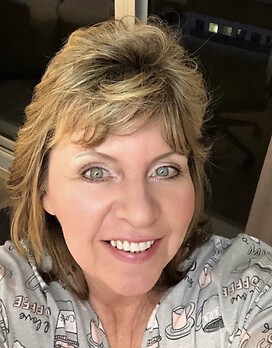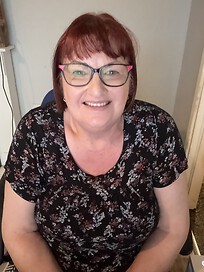Patient Leader Certification: What's Your 60 Second Pitch?
SocialHealthNetwork.com Team
What is your 60-second pitch? In other words, what would you say to someone to summarize who you are in 60 seconds or less?
Share your pitch here, and read other Patient Leaders' pitches! Remember that as you evolve in your Patient Leader journey, your pitch may evolve, too!

RaytheonRetirement2011Member
Hello, my name is Michael Russell, I was diagnosed with Multiple Sclerosis in 2009 after a five-year-long medical journey of tests, therapy, and doctor visits. Being diagnosed at age 54 and looking back at my physical changes over the years I feel MS may have begun in the mid to late ’80s.
Before being diagnosed I focused on work and becoming successful and being the best at everything I took part in. Being diagnosed with MS reshaped my vision of life. I now focus on the simple things of life such as sunrises, sunsets, and seasonal changes and helping others throughout the year.
Staying positive helps navigate the challenges MS presents. During those rough times, taking an internal inventory of what is good in life, family, friends, and helping others keeps you positive.
I try to take time helping others newly diagnosed navigate the MS journey as an Admin on MS Facebook pages, Advocate with the National MS Society, and an Advocate and have written articles for MultipleSclorosis.net. /BuzzyMS.
I was lucky to grow up in Southern California and moved to Highlands Ranch Colorado in 2004. My goal is staying active and just enjoying life is the key to tackling the challenges MS presents.

DebAMember
My name is Deb , and I am both a patient and an advocate living with multiple chronic bone and joint conditions. I was first diagnosed with osteoarthritis in my hands and knees in 1994 at the age of 32, though my pain began years earlier. Over time, my journey expanded to include spondylolisthesis after bilateral pars fractures that caused slippage at L5–S1, and my most frightening diagnosis, osteonecrosis, in 2014 following a knee injury.
Hearing the words “dead bone disease,” facing the possibility of joint collapse, and becoming medically disabled was terrifying, with nowhere to turn for guidance or support. That moment changed my life. I founded and continue to facilitate an online osteonecrosis support group that has grown to over 1,600 members. I also wrote a resource booklet for newly diagnosed patients that includes medical information, shared patient stories, surgery preparation tips, and home safety guidance, and I created an awareness ribbon for the condition.
I also write a blog focused on chronic bone and joint disease, sharing patient stories, emerging treatments, and education. Today, I serve as an arthritis advocate and Connect Group facilitator, helping newly diagnosed patients advocate for themselves, work as a team with their doctors, and feel empowered rather than alone and afraid like I did.


KRMayedeMember
My name is Richard Mayede, and I was born into a devout Buddhist family in 1968. I believed I could over asthma, which once kept me from running or even keeping up with other kids. Through chanting and exercise, I not only overcame asthma — I became one of the fastest sprinters on my high school track team. That early experience showed me the power of belief in my faith and helped me stay strong through my entire life.
In 2005, I was diagnosed with Parkinson’s. Instead of feeling defeated, I chose to use this challenge to inspire others and deepen my compassion. It’s taught me to try to see the Buddha nature in everyone.
Looking toward the future, I focus on enjoying each day, volunteering in the Parkinson’s community, and continuing to share my faith. My hope is to live in a way that contributes to creating value and respect for humanity, one day at a time.

Accessible RachMember
Hi, I’m Rachael, a patient leader, disability advocate, and content creator. I live with multiple sclerosis and use my platform to amplify real stories from the disabled community, challenge stigma, and push for accessible change.
Through my work, whether it’s social media advocacy, blogging, or public speaking, I focus on bridging the gap between patients and policymakers, making sure lived experience isn’t just heard, but valued in decisions that affect our lives.
I bring an honest, creative, and solutions-driven perspective, grounded in both personal experience and years of community engagement. My goal as a patient leader is simple: to turn challenges into change, and ensure every voice, especially those often left out, has a seat at the table."

